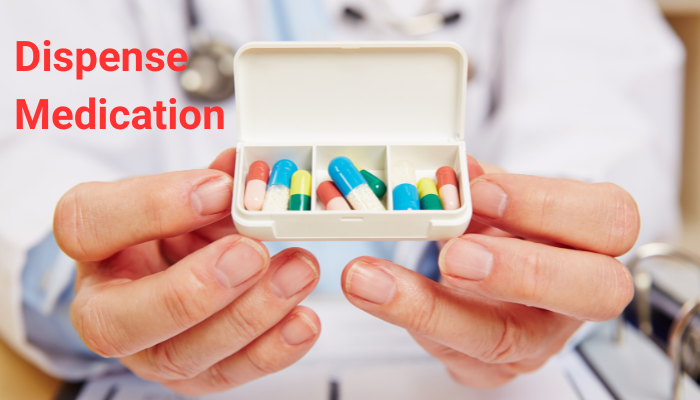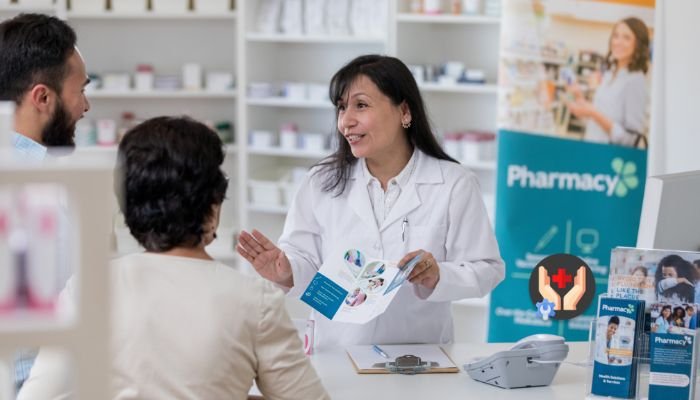The Benefits of Pursuing B.Pharma at KIITS College
In this way, having the understanding of the benefits of B Pharma at KIITS College is of great importance.
Thus, pharmacy is an extending professional area in the field of healthcare that can provide interesting and meaningful occupation for a person. If you are in a position where you are thinking about preparing for Bachelors of Pharmacy (B. Are you a student with a keen interest in a B. Pharma degree and searching for a fine B. Pharma College in Dehradun? Your focus should be KIITS. This blog is a continuation of the article which focuses on exploring an enormous number of benefits that come from obtaining the B. Pharma degree at KIITS and preparing for a challenging future in the sphere of pharmacy.
Benefits of B Pharma Degree
Before knowing the advantages of KIITS, let’s know about the opportunities which open up just after getting a B. Pharma degree. Pharmacy practitioners have a critical role in the healthcare sector This group of health care providers is essential in the health system. Pharmacists build a middle link between laboratory science and patient treatment through practicing the rational and secure utilization of medications. B. Pharma equips you with the knowledge and skills to:
Dispense medications

You will gain ability of being able to provide the right medication proportion to the right patient and explain side effects to them.
Drug formulation and development

The course explains how the formulation of drug occurs, might serve as the backbone in encouraging you to engage in research to develop new drugs.
Clinical pharmacy

Discover the specifics of the pharmacy, gaining knowledge of how various therapies and drugs can combine and affect patients with certain diseases.
Pharmacy Management

The ability acquired from this path will enable you to lead the operation of a pharmacy and legal requirements.
Benefits of B.Pharma at KIITS
Let us now look at some of the specific privileges that KIITS has for anyone pursing a B.Pharma course in Dehradun.
1.Renowned Faculty and Industry Collaboration
This is because most of them have an experience from practical field thus making sure that, from their curriculum you are facilitated with practical knowledge and connections to link you up for your future career opportunities. The faculty members who have several years of industry experience come up with courses that are up-to-date with the current trends(one of the main benefits of B Pharma at kiits) Consequently, students get exposed to practical knowledge as well as cultivate industry relationships that will be useful in their future careers.
2.Cutting-Edge Infrastructure and Laboratories
KIITS has modernized infrastructure together with well-equipped laboratories. This makes it possible for students to use modern equipments thereby giving them knowledge about various aspects in pharmaceutical science. Such hands-on experience will help you understand better what is required of a pharmacist.
3.Comprehensive Curriculum and Specialization Options
Furthermore, KIITS (Best Pharmacy College in Dehradun) might provide some specialization alternatives within these areas of study earlier mentioned. The B.Pharma program at KIITS offers a comprehensive curriculum consisting all core areas of pharmaceutical sciences including pharmaceutics, pharmacology, pharmacognosy, pharmaceutical chemistry among others.
4.Firmly Focused on Research and Innovation
KIITS pharmacy school in Dehradun promotes a culture of research and innovation. This might include opportunities to get involved in ongoing research projects with lecturers or access specialized research facilities. Engaging in research will enable you to develop critical thinking skills, gain invaluable experience, as well as potentially contributing to the pharmaceutical science advancements.
5.Professional Advancement and Job Placement Support
KIITS appreciates the need for career readiness. These can involve dedicated career services such as resume writing workshops, mock interviews or industry networking events. The all-rounded approach ensures that you are prepared adequately for job hunting and eventually landing into a fulfilling career in pharmacy.
6.Dynamic Campus Culture and Co-curricular Engagement
KIITS goes beyond academics in creating an active campus life. While there you may participate in extracurricular activities; become a member of students clubs or organizations, meet people who think like you do. Through this holistic environment one grows personally, develops leadership qualities and makes lifelong friends.
7. Dependent Location and Opportunities Rebate
Definitely Dehradun is best to be if you are up for an academic purpose as this place have beautiful environment and peace at its atmosphere located at the Himalayan foothills. Thus besides the scenic spot, Dehradun also serves as a brigade of healthcare institutions and pharmaceutical companies. That way, not only will you get some internship opportunities which are extremely important in your course but you’ll also have run into a few industry players who could ensure it he remaining part of the journey is smooth sailing.
FAQs
Q.1) Is B. Pharm at KIITS recognized by the regulatory bodies?
Ans) Yes, B. Pharm at KIITS is approved by regulatory bodies such as Pharmacy Council of India(PCI) and All India Council for Technical Education(AICTE)
Q.2) What makes KIITS stand different from other B.Pharma colleges in Dehradun?
Ans) KIITS is distinct from other B.Pharma colleges due to the industry-aligned curriculum, state of the art infrastructure and robust placement support provided.
Q.3) Do the scholarships are provided to B. Pharm students at KIITS?
Ans)Yes, KIITS provide scholarships to meritorious students with strong academic records and needy students.
Ans:-4)Yes All the students are advised to engage themselves into extra curricular at KIITS.
Ans)Absolutely! Ans) Yup! Apart from this, KIITS is big on motivating students to take part in various other activities like sports, cultural agenda and community work.
Q.5) Career Opportunities for B. Pharm graduates after completion of B.Pharm from KIITS?
Ans) Graduates of Pharm from KIITS are adapted to pursue a variety of career options within the pharmaceutical business, starting from production and analysis-stage roles to promoting and regulative job within the field.
Q.6) Does KIITS offer hostel facilities for outstation students?
Ans) Yes, KIITS provides excellent and comfortable hostel facilities where outstation students can stay safely and have the best conducive atmosphere to study.
Q.7) Does the course fees of B Pharma in government and private colleges differ?
Ans) Yes, B Pharma course fees can vary from government to private colleges OH! Okay tweeted (July 1) :um, just a simple tip.. government colleges always have cheaper tuition fee compared to private college.
In conclusion, KIITS- Your stepping stone to a rewarding pharmacy career.
Looking for B.Pharma College in Dehradun? KIITS is one of the best alternatives! This, along with its distinguished faculty, state-of-the-art infrastructure, well-planned campus and comprehensive curriculum prepares you not just to enter the world of pharmacy but assures that they will leave it armed with everything offered at KIITS.








